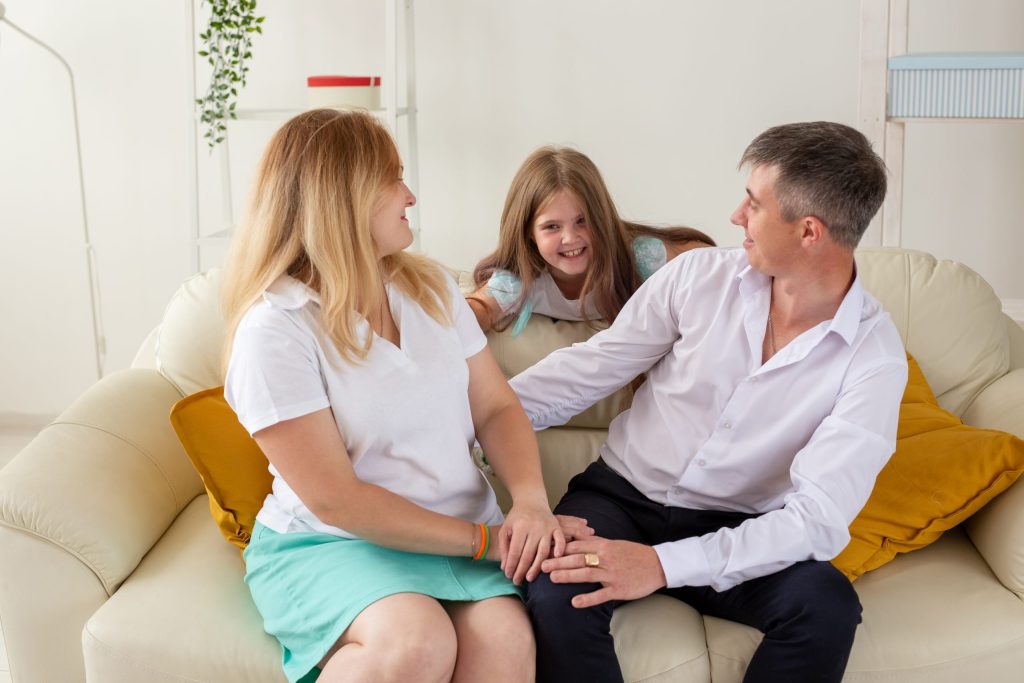Relationships are one of the most rewarding parts of life, but they can also be one of the hardest. Even strong, loving couples go through stress, disagreements, or seasons of distance. Over time, small problems can grow, leaving partners frustrated or disconnected. When that happens, marriage counseling can help.
At Lifeline Behavioral Health, we provide counseling for individuals, families, and couples. Our goal is to help you communicate better, rebuild trust, and strengthen your relationship. If you’re wondering whether counseling could help your marriage, here’s what to expect.
What Is Marriage Counseling?
Marriage counseling, also called couples therapy, is guided by licensed professionals, often known as marriage and family therapists. These therapists are trained to help partners understand one another, work through conflict, and build stronger connections.
Unlike advice from friends or family, therapy gives you a neutral space where both partners can feel heard. In this setting, you’ll learn how past experiences, communication habits, and daily stressors affect your relationship.
Counseling isn’t just for couples in crisis. Many married couples use therapy to prepare for big life changes, sharpen their communication skills, or simply keep their relationship healthy. It’s also helpful for dating partners, engaged couples, and even those in long-distance or nontraditional relationships.
When Couples Counseling Can Help
No two relationships are the same, but here are some common reasons couples choose counseling:
- Constant arguments – Fighting about the same topics without resolution.
- Emotional distance – Feeling more like roommates than partners.
- Trust issues – Struggling after infidelity or broken promises.
- Money stress – Tension about bills, spending, or debt.
- Parenting disagreements – Clashing over discipline or family roles.
- Life transitions – Adjusting to changes like having a baby, retirement, or a move.
- Preventive care – Strengthening a healthy relationship before problems grow.
These issues are common. Counseling gives couples the skills to handle them in healthier ways.
Marriage and Family Therapy
Marriage and family therapy focuses on the bigger picture: how relationships shape individual well-being. Unlike individual therapy, which looks at one person, this approach considers how partners and families affect each other.

Marriage and family therapists are trained to see patterns in communication and behavior. They help partners shift from blame and frustration to teamwork and understanding.
At Lifeline, we use proven approaches like cognitive behavioral therapy (CBT), dialectical behavior therapy (DBT), mindfulness techniques, and trauma-informed care. But there are also other widely used approaches in marriage counseling, including:
- Gottman Method – Targets harmful patterns such as criticism, defensiveness, stonewalling, or contempt.
- Emotionally Focused Therapy (EFT) – Focuses on identifying emotions and repairing bonds through empathy.
- Solution-Focused Therapy – Helps couples work toward specific, practical goals.
- Discernment Counseling – Short-term counseling for couples unsure whether to stay together.
This range of methods means there’s no one-size-fits-all path—therapy is customized for each couple’s needs.
How Marriage Counseling Helps
Marriage counseling is about more than venting frustrations. It gives couples tools they can use every day. Benefits often include:
- Clearer communication – Learning how to listen and respond with respect.
- Conflict resolution skills – Handling disagreements without escalating.
- Rebuilding intimacy – Restoring closeness and trust.
- Shared goals – Defining what you want from your future together.
- Stress management – Keeping outside pressures from harming the relationship.
Many married couples describe counseling as a turning point. With the right guidance, they move from feeling stuck to feeling hopeful again.
What to Expect in Couples Therapy at Lifeline
Here’s what the counseling process usually looks like at Lifeline Behavioral Health:
- First meeting – Your therapist asks questions to learn about your relationship, your history, and your individual perspectives. This intake step helps them understand your dynamics.
- Setting goals – Together, you’ll define what you hope to achieve in counseling, such as better communication, rebuilding trust, or reducing conflict.
- Weekly sessions – Most couples meet once a week to practice new skills and work through challenges.
- Practice at home – Therapists often give simple exercises to try between sessions.
- Flexible formats – Sessions can be in-person, online, or a mix of both.
- Comprehensive support – If issues include trauma, mental health, or substance use, Lifeline offers outpatient and partial hospitalization programs for deeper care.
Each couple’s timeline is unique. Some notice a change in a few weeks, while others continue therapy for several months.
Does Marriage Counseling Work?
Research is clear that counseling can be effective. According to the American Association for Marriage and Family Therapy (AAMFT):
- 98% of couples who try counseling rate it as helpful.
- 90% report better emotional health.
- Two-thirds notice improvements in physical health after therapy.
Studies also show that couples who seek therapy after serious issues—like infidelity—report higher satisfaction than those who try to work through it alone.
Marriage counseling can be effective whether you’ve been together for a few months or decades. The key is showing up with openness and commitment.
Learn more about our counseling services here.
FAQs About Marriage Counseling
What is the success rate of marriage counseling?
Research shows that about 75% of couples report improvement, and nearly all say therapy provided valuable tools for their relationship. Success depends on both partners being open and committed to the process.
What not to say to a marriage counselor?
Avoid blaming statements like “This is all your fault” or shutting down with “I don’t care.” Counseling works best when both partners are honest, respectful, and focused on solutions.
Does marriage counseling actually help?
Yes, marriage counseling has been shown to improve communication, rebuild trust, and strengthen intimacy. Couples often leave with practical skills that continue to help long after therapy ends.
When should a couple go to marriage counseling?
Couples should consider counseling when conflicts feel repetitive, communication breaks down, or emotional distance grows. Many also benefit from starting therapy proactively—before small issues become bigger problems.
Why Choose Lifeline Behavioral Health?
At Lifeline, we believe relationships matter. Our counseling services are designed for individuals, families, and couples. We match you with skilled marriage and family therapists who understand both emotional health and relationship dynamics.
With options for couples therapy in-person, online, or through hybrid care, support is always accessible. For married couples dealing with deeper challenges, our team can also connect counseling with broader behavioral health treatment.
Starting counseling doesn’t mean your relationship has failed. It means you’re willing to invest in your future together. At Lifeline Behavioral Health, we provide the tools and support you need to grow closer, communicate better, and find joy in your relationship again.


